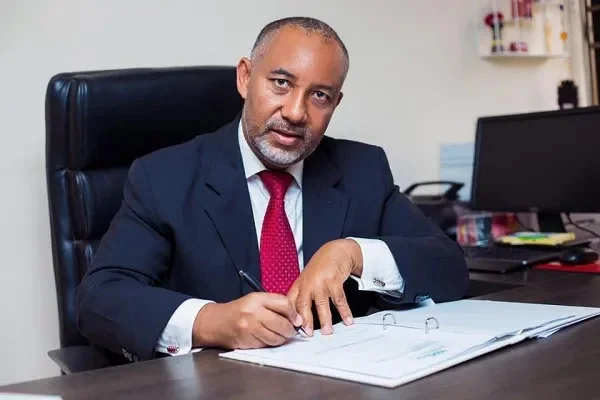Former Chief Executive Officer of the Ghana National Petroleum Corporation (GNPC), Alex Mould, has raised concerns that the government’s gold-for-oil policy could disrupt the oil industry by creating an unfair competitive environment. Speaking on Citi TV’s Face to Face with Umaru Sanda on January 16, 2023, Mould argued that the policy, which saw Ghana receive its first 40,000 metric tons of oil from the United Arab Emirates on January 15, essentially positions the government as a direct competitor to existing players. This move, intended to address dwindling foreign currency reserves and cedi depreciation, risks causing chaos among Bulk Oil Distribution Companies (BDCs), according to Mould.
Overview of the Gold-for-Oil Policy
The gold-for-oil initiative, announced by the Ghanaian government in 2022, aims to barter gold for petroleum products to ease pressure on foreign exchange reserves. With oil importers demanding dollars contributing to the cedi’s weakening and rising living costs, the policy seeks to stabilize the economy. The first consignment, delivered on January 15, 2023, is to be distributed through the Bulk Oil Storage and Transportation (BOST), with plans formulated by the Energy Ministry and Oil Marketing Companies for its sale.
Mould acknowledged the policy’s intent but criticized its implementation, noting that it replicates what private players already do—importing finished products. “You are introducing another player,” he said, highlighting potential conflicts with BDCs unhappy about BOST’s role. The government’s involvement, using entities like BOST, Tema Oil Refinery (TOR), and Go Energy as BDCs, could favor state interests over private ones, per Mould.
Unfair Competition and Market Disruption
Mould warned that the policy creates an unlevel playing field, as the government uses national foreign exchange to support its own entities. “Government should make it clear to the other players that it’s not going to be a fair playing field,” he urged, suggesting transparency about prioritizing government needs. He argued that the gold-for-oil barter is “not doing something different” from existing practices, risking resentment among private importers who may feel sidelined.
The former GNPC CEO pointed out that BDCs are already dissatisfied with BOST importing products, and the government’s entry could exacerbate tensions. “They are basically using our foreign exchange to favor a certain player,” Mould stated, calling it “unacceptable.” In Nigeria, where economic challenges like 52.2% inflation echo Ghana’s issues, such policies highlight the need for balanced competition to avoid market distortions.
Call for Transparency and Accountability
Emphasizing the need for clarity, Mould questioned the policy’s transparency: “Who is the buyer of the gold? Who is selling you the oil?” He argued that without full disclosure, the initiative could undermine trust among industry stakeholders. Mould suggested fixing challenges in the entire value chain, including the Bank of Ghana (BoG) and Precious Minerals Marketing Company (PMMC), to ensure gold sales properly contribute to foreign exchange reserves.
He noted that the policy won’t alter the net foreign exchange inflow, as it’s essentially a barter swap. “It’s a zero-sum here,” Mould explained, urging the government to address lax enforcement in gold sales rather than introducing potentially disruptive measures. His call for accountability resonates amid Ghana’s economic strains, with the cedi’s depreciation exacerbating import costs.
Implications for Ghana’s Oil Sector
Mould’s critique underscores potential chaos if the policy favors government entities, potentially discouraging private investment in the oil sector. With Ghana’s economy facing dwindling reserves, the gold-for-oil initiative aims to mitigate dollar demand, but Mould warns it may not reduce or increase foreign exchange without systemic fixes. As the first consignment is distributed, industry players await clarity on how the policy will balance competition and economic stability.






